Chickens can indeed enjoy a nibble of celery, making it a delightful addition to their diet. The crisp texture of this crunchy vegetable appeals to their natural foraging instincts, allowing them to engage with their food in an enriching way. Celery is low in calories yet high in water content, providing hydration and appeal during hot months when chickens may need extra refreshment. While some might wonder if chickens eat celery leaves or stalks both are perfectly safe, and many chickens seem to prefer the leafy greens!
Can Chickens Have Celery?
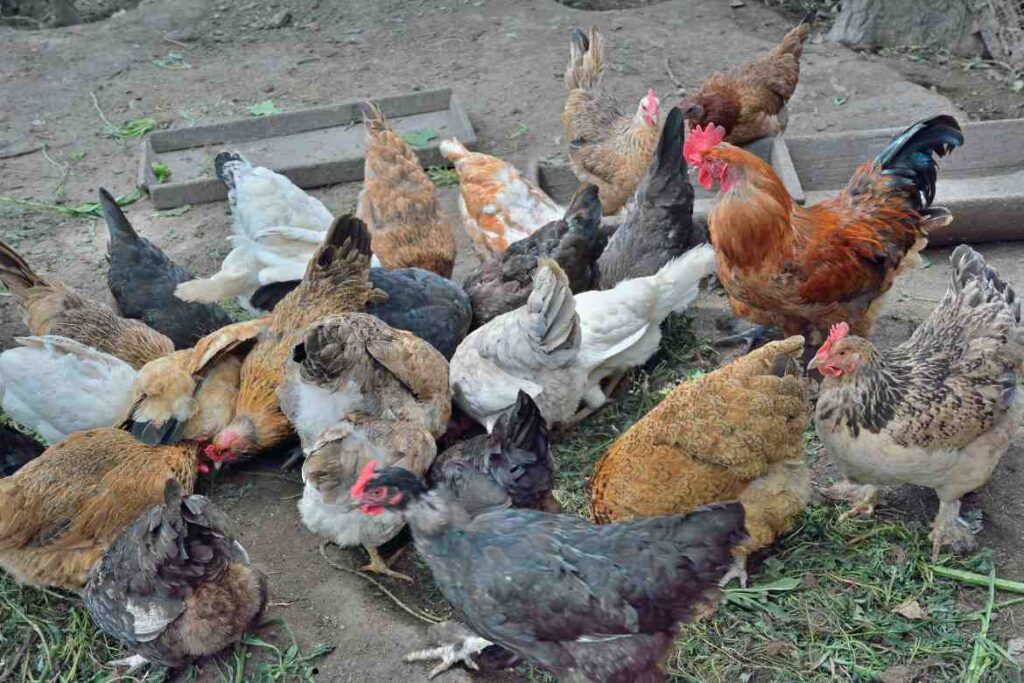
Can chickens have celery, it’s worth noting that this crunchy vegetable can actually be a nutritious addition to your flock’s diet. Chickens are omnivores, which means they thrive on a variety of foods, and celery packs a punch with its high water content and low calories. This makes it an excellent treat during hot summer months.
The texture of celery can also promote healthy pecking behavior. Can chickens eat Tomatoes love to scratch and eat their way through textures; this not only keeps them entertained but also supports their natural instincts. Moderation is key; too much cellulose might lead to digestive issues.
To introduce celery into their diets safely, consider chopping it into smaller pieces or offering it as part of a veggie medley mixy our Can Chickens. Eat Celery will likely enjoy the crunch while reaping the health benefits! So next time you’re in the kitchen preparing a salad or soup, remember that your chickens would appreciate sharing some crunchy celery with you.
Nutritional Benefits of Celery for Chickens
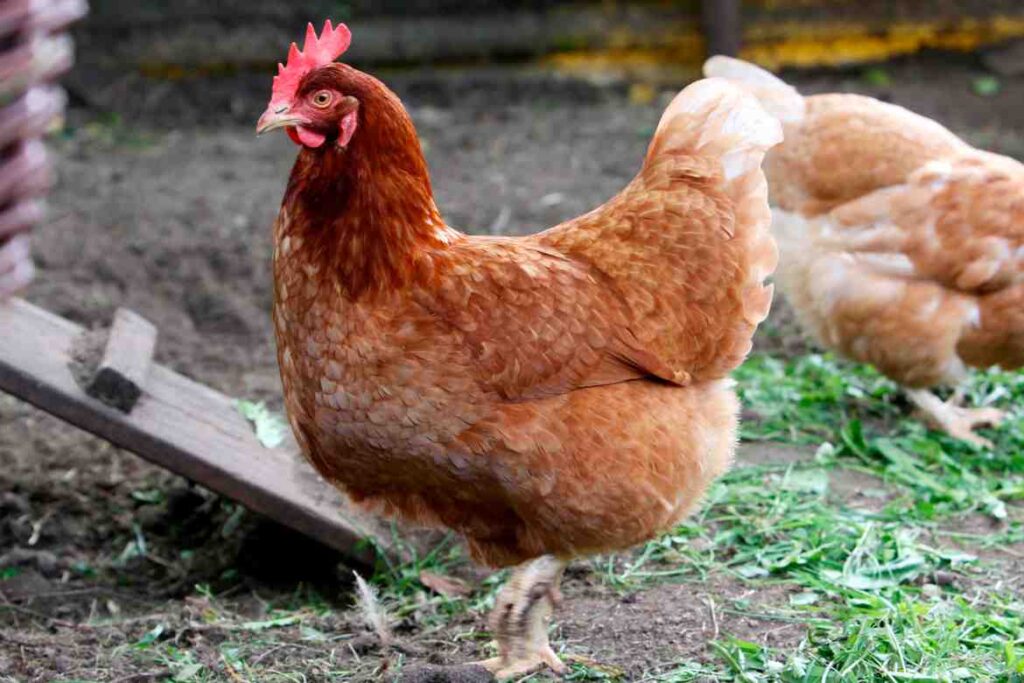
Celery is not just a crunchy snack for humans; it’s also a powerhouse of nutritional benefits for Can Chickens Eat Celery. One significant advantage is its rich vitamin C content, which plays a crucial role in enhancing the immune system of our feathered friends.
Vitamins
- Vitamin C stands out as a powerhouse in avian health, playing a crucial role for Can Chickens Eat Celery beyond mere survival. Chickens exposed to environmental stressors can benefit significantly from this vitamin, enhancing their resilience against diseases while mitigating oxidative damage caused by free radicals.
- Vitamin K should not be underestimated when cultivating robust chickens. Its pivotal role in blood clotting helps safeguard birds from potentially fatal injuries by preventing excessive bleeding during accidents or during natural processes like laying eggs.
- Folate (Vitamin B-9) propels cell growth and division forward in dramatic fashion transforming energy into action within your flock’s bodies. A sufficient intake supports not just general well-being but specifically promotes higher egg production rates among hens.
Minerals
- Calcium is fundamental for chickens, primarily because it directly impacts the strength of their eggshells and bones. One might overlook this nutrient’s importance, but without adequate calcium, hens may lay eggs with weak shells that are prone to breakage.
- Equally important are potassium and magnesium; these minerals play critical roles in muscle function and cellular health. Potassium helps maintain fluid balance while supporting a healthy heart essential for active birds.
- Magnesium works alongside calcium and phosphorus to ensure that chicken cells function optimally, fortifying bones during growth periods. Meanwhile, phosphorus deserves special mention as it assists calcium bonding within skeletal structures, underscoring its role in constructing strong bone frameworks.
- Manganese emerges as another key player in poultry nutrition; its involvement extends beyond mere mineral support. It aids lipid metabolism and carbohydrate processing vital functions that keep energy levels high among your flock.
- By acknowledging the intricate interplay between these minerals calcium, potassium, magnesium, phosphorus, and manganese we highlight how their presence creates not just healthier Can Chickens Eat Celery but also improves productivity on farms looking to maximize both egg production quality and animal welfare.
Antioxidants
- In the quest for elevating the quality of poultry products, the inclusion of flavonoids in chicken feed has emerged as a game changer. These powerful antioxidants not only enhance the overall health and vitality of Can Chickens Eat Celery but also contribute to improving meat and egg quality.
Benefits of Celery for Chickens?
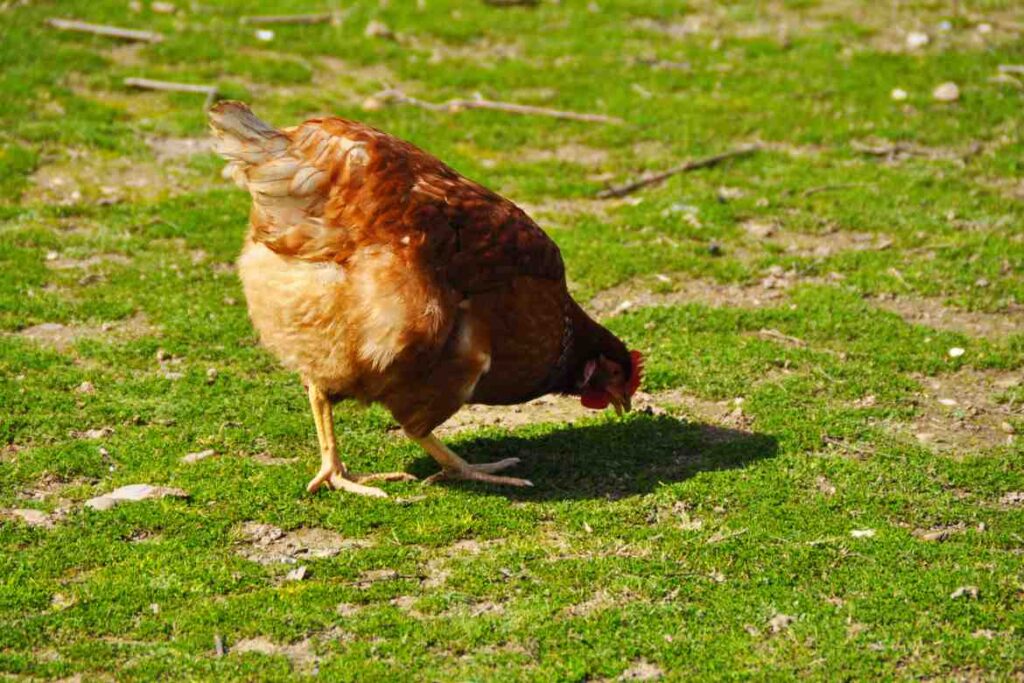
When considering what to add to a chicken’s diet, celery stands out as an often-overlooked gem. This low-calorie vegetable is not only a crunchy treat but also packed with fiber, aiding in the reduction of bad cholesterol and promoting healthier Can Chickens Eat Celery overall.
Including celery in their diets can be especially beneficial during warm months when hydration is crucial; its high water content helps keep your flock hydrated without the excess sugars present in many commercial treats.
The antibacterial properties of celery contribute significantly to gut health. By fostering good bacteria while combating harmful pathogens, it lays the groundwork for robust digestive health, a vital aspect of any chicken’s well-being. For more information, check out Can Chickens Eat Celery.
it’s essential for chicken owners to exercise caution: moderation is key when introducing new foods like celery into their diet. Too much moisture from excessive servings can set the stage for frostbite during colder months or lead to digestive troubles. Balancing this nutritious addition ensures your Can Chickens Eat Celery reap the benefits while maintaining optimal health throughout every season.
How to Feed Celery to Chickens?
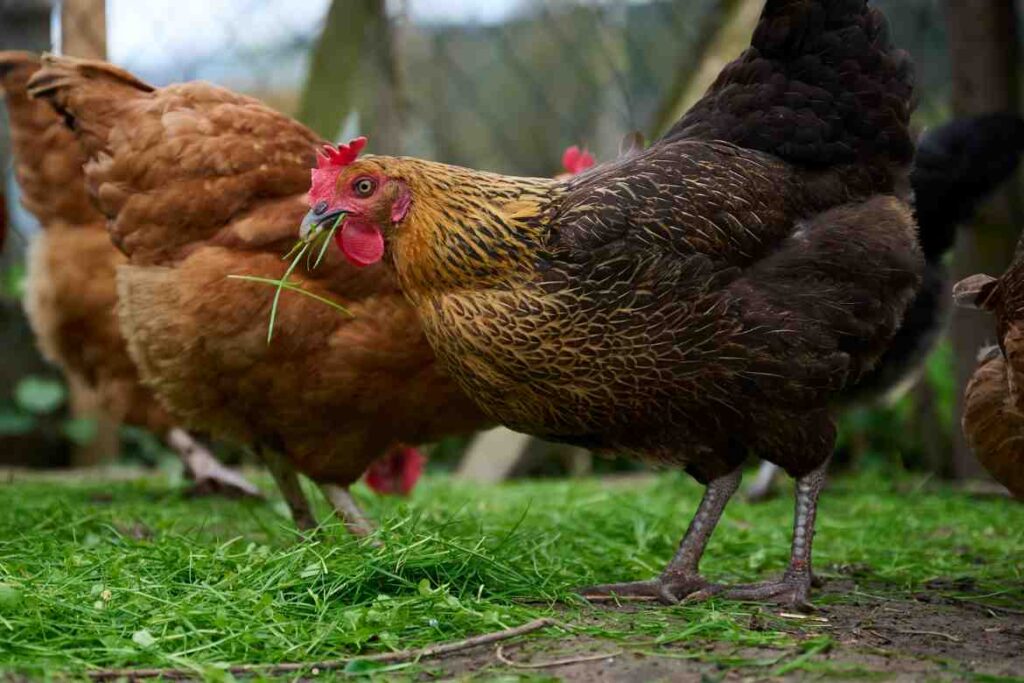
Washing and Chopping the Celery
When preparing celery for your feathered friends, washing and chopping it properly can enhance not just its appeal but also its nutritional benefits. Start by rinsing the celery thoroughly under running water to remove any dirt or pesticide residues that might linger on the stalks.
Chickens are curious creatures, and presenting clean, fresh food can encourage them to explore and enjoy their new treat. Once washed, slice the celery into manageable pieces; this makes it easier for smaller beaks to grasp and encourages playful pecking an essential behavior for their physical health.
Chopping the celery isn’t merely about convenience; it’s an excellent strategy for maximizing nutrient absorption. When Can Chickens Eat Celery have access to small bits of celery, they can efficiently digest and metabolize the fiber-rich vegetable without straining themselves.
Consider mixing chaffed celery with other greens or grains at mealtime to create a colorful medley that tempts even slightly picky eaters. By embracing a thoughtful approach to feeding your flock celery both in preparation and presentation you can elevate their dining experience while ensuring they benefit from this crunchy delight!
Avoid Feeding Moldy and Rotten Celery?
When considering how to feed celery to chickens, it’s essential to prepare it correctly for optimal health benefits. First, ensure that any celery you offer is fresh and devoid of mold or rot; spoiled vegetables can harbor harmful bacteria that may disrupt your flock’s digestive systems. A simple wash under running water can help remove dirt and potential contaminants. Cut the celery into smaller pieces or chop it up this makes it easier for your Can Chickens Eat Celery to peck at and consume without the risk of choking.
Try varying your presentation by including celery as part of a veggie medley alongside other poultry-friendly treats like carrots and leafy greens. This not only keeps mealtime interesting but also encourages natural foraging behaviors, which are beneficial for their mental stimulation.
Consider serving raw celery in hot weather as a hydrating snack since its high-water content helps keep your birds cool during sweltering days just another way to enhance their welfare while introducing healthy snacks! Always observe how your feathered friends react; many enjoy this crunchy treat, while others may prefer different flavors or textures, paving the way for customization in their feeding routine.
How Much Celery Can Chickens Eat?
When considering how much celery chickens can eat, it’s important to remember that moderation is key. Can Chickens Eat Celery enjoy small amounts of chopped celery as an occasional treat due to its low-calorie content and high water volume, but it’s best to limit their intake to about 10% of their overall diet. This means if you’re feeding them a balanced diet primarily consisting of grains and pellets, giving them a handful of celery around one to two stalks for a flock of five or six birds should be sufficient.
The texture and fibers in celery can actually aid in chicken digestion when offered correctly. It’s wise to chop the stalks into bite-sized pieces; this not only encourages easy consumption but also prevents choking hazards.
Introducing leafy greens like celery slowly into their diet allows you to monitor for any adverse reactions though rare as some Can Chickens Eat Celery may have unique preferences or digestive sensitivities. In essence, while chickens can have celery as part of their varied diet, always keep portions within that healthy range!
Can Chickens Eat Celery Leaves?
Chickens are surprisingly adaptable eaters, and the inclusion of celery leaves in their diet can be a delightful addition that not only diversifies their palate but also contributes to their overall health.
Celery leaves are rich in vitamins A, C, K, and essential minerals, making them a nutritious green treat for your flock. Beyond basic nutrition, these leafy greens contain antioxidants that can help bolster the immune systems of your Can Chickens Eat Celery.
While some folks might think of celery primarily as a crunchy snack for humans, its often-overlooked leaves pack a punch in flavor and nutrients! Many backyard chicken keepers find that their hens enjoy pecking at these greens almost as much as they love scratching around for insects or seeds.
Offering celery leaves can also encourage natural foraging behavior an important aspect of chicken well-being and might even facilitate better social interactions among flock members as they share this tasty treat.
Can Chickens Eat Celery Stalks?
Chickens are often seen as some of the most versatile foragers in the backyard, and celery stalks offer a fascinating addition to their diet. While many might think of celery merely as a crunchy snack or garnish for humans, Can Chickens Eat Celery can truly benefit from its fibrous texture and moisture content. Not only does it help keep them hydrated, but the crunchiness of celery can also provide mental stimulation and encourage pecking behavior that is natural to their instincts.
Can Chickens Eat Celery Root?
Chickens have a diverse palate, and while many poultry owners are familiar with popular treats like fruits and vegetables, celery root (or celeriac) often goes unnoticed. This knobby tuber is not only packed with nutrients but can also be a delightful addition to your flock’s diet. Rich in fiber, vitamins C and K, and antioxidants, celery root promotes healthy digestion and boosts the immune system of your feathered friends.
Offering Can Chickens Eat Celery celery root adds variety to their diet, which is essential for maintaining their interest in food and overall well-being. The unique taste and texture could stimulate natural pecking behaviors that mimic foraging an instinctual activity crucial for their mental stimulation.
Final Thought:
Chickens can safely enjoy celery as part of a varied diet, providing them with essential nutrients while keeping their meals interesting. The crunchy texture and high water content make it an appealing treat that most Can Chickens Eat Celery will relish. However, it’s important to offer celery in moderation and ensure it is cut into manageable pieces to avoid choking hazards. Always remember to wash the celery thoroughly to remove any pesticides or contaminants before serving. So, why not add some chopped celery to your flock’s next meal and watch them enjoy this healthy snack?
FAQs:
Can chickens eat raw celery?
Yes, chickens can eat raw celery in moderation. It is not toxic to them and can provide some nutritional benefits.
Should I chop celery before giving it to my chickens?
Chopping celery into smaller pieces can make it easier for Can Chickens Eat Celery to eat and reduce the risk of choking.
What size should I cut the celery for my chickens?
Cut celery into 2-3 inch pieces to make it manageable for your chickens to peck at.
Can chickens eat onions?
No, chickens should avoid onions as they can cause hemolytic anemia and other health issues.
- Male Black Widow Spider Markings - March 23, 2025
- Mexican Red Headed Bird: A Brilliant Avian Wonder - January 16, 2025
- Can Turkeys Eat Bread? - January 15, 2025
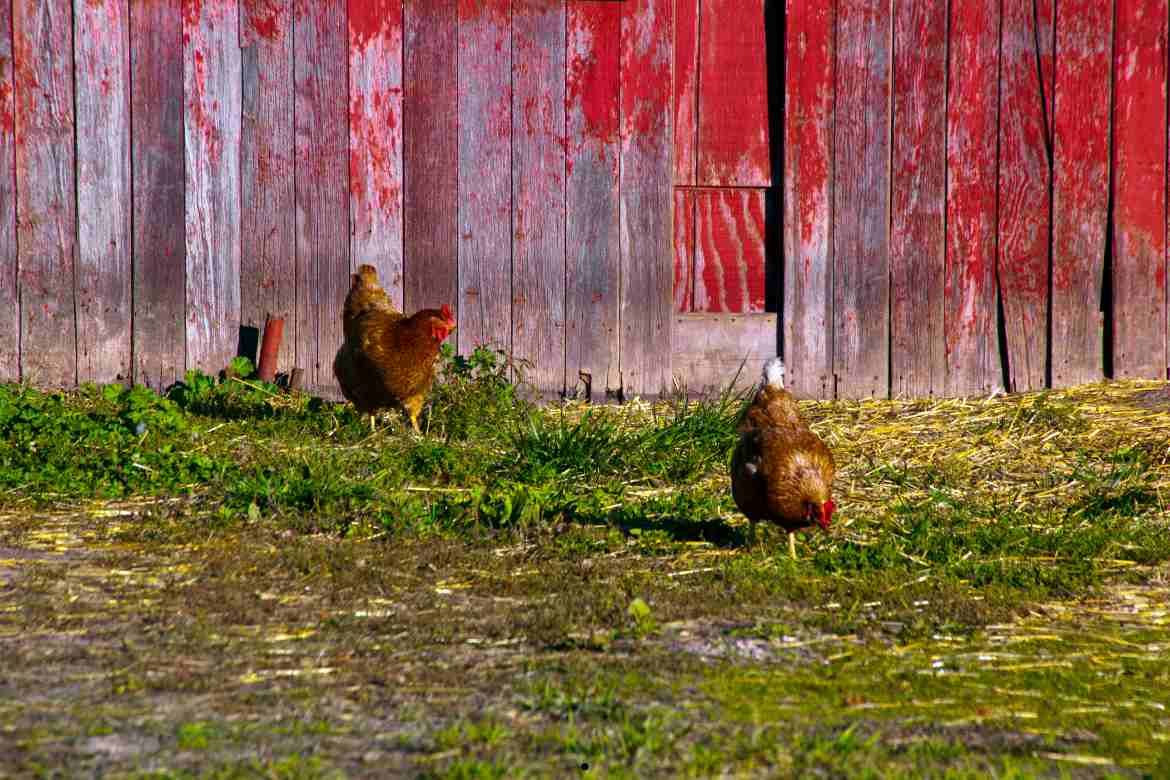








1 thought on “Can Chickens Eat Celery?”